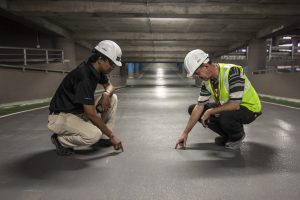 There has been a massive impact on the economy as a result of Covid 19, one that has many legal implications that will vary depending upon your country and the contracts you are dealing with. In regard to contracts, you need to focus upon where it was implemented, the forms you are using, as well as the words that were part of the contract regarding FIDIC and NEC and other terms. As this situation continues to get worse, there could be many other issues that may arise.
There has been a massive impact on the economy as a result of Covid 19, one that has many legal implications that will vary depending upon your country and the contracts you are dealing with. In regard to contracts, you need to focus upon where it was implemented, the forms you are using, as well as the words that were part of the contract regarding FIDIC and NEC and other terms. As this situation continues to get worse, there could be many other issues that may arise.
Currently, Covid 19 is making it so difficult for projects to move forward, in fact, making some of them and possible to complete. It is causing a significant slowdown, disruption, and delay of the projects because supply chains for materials have been monumentally disrupted, leaving many small to medium sized construction businesses, such as APL Kwikform, to suffer from the effects of the pandemic. Projects that have come to a stop may subsequently resume later on.
There are many governments that have ordered businesses to stop their operations altogether. The construction industry, however, has not been part of these mandated or mandatory shutdowns.
There are a couple reasons why this is true including:
How important it is for these projects to continue, and if possible, maintain infrastructure projects; and the safety and health risks associated with Covid 19 will be different from each project to another. If people are working outside, for example, and if they do not work in close proximity to each other, it is going to be different from a health and safety precaution perspective when compared to projects that are within a closed environment. In every case, however, where the work will continue to move forward, safety and health risk assessments must be conducted, complying with scientific, medical, governmental, and contractual guidelines for keeping the environment safe for those employees.
The situation, as it is, continues to evolve in every country, and some have suspended all nonessential businesses from moving forward, including a large number of construction projects. There are a couple of countries that have made specific demands including requiring construction sites to no longer move forward, allowing contractors to suspend all projects, and these extensions will likely continue until the emergency situation is over, in particular, for public works.
Contractual Implications
From a contractual perspective, Covid 19, and the pandemic, should not be involved in provisions that are represented by unforeseen events such as a pandemic. There are provisions that will fall into a couple different categories.
There is something called ‘force majeure’ which represents the first category, which you will learn more about in the Client Alert section, which is a term that refers to unforeseeable events which got started when the contract was initiated, affected by a parties control, that simply cannot be overcome or prevented, and may result in the party not being able to comply with or perform all of the mandated obligations. The Covid 19 pandemic can then be looked at as creating this type of event. There are certain forms of contracts, including FIDIC forms, where this type of event would entitle contractors to get extensions for these types of critical delays caused by such events, but may not lead to compensation for all of the costs incurred as a result of the delay, except when there is an agreed upon prior circumstance. As usual, the wording of the application, referring to the applicable clauses, can be very important.
Force majeure only pertains to nonperformance excuses for these obligations which must pertain to a specified event. This will raise certain questions, for instance, when certain activities, e.g. design activities, can be pursued, whereas others may not be at all. These types of requirements will look at the consequences of these situations which cannot be overcome and this can be very significant because the contractor would be able to take certain measures to allow the work to move forward, although it would be in a much lower rate. There will be employers that may refuse to acknowledge that the force majeure even exists or applies to these situations.
Engineering and construction projects that are impacted because of laws passed by governments, or even regulations and directives, which are intended to address this particular pandemic. The restrictions that are placed which can prevent the movement of goods or people within, or even between, countries may require a lockdown which typically represents laws changing, which may have an impact – which is significantly greater than how the contractor would be able to progress forward during the pandemic while it is happening.